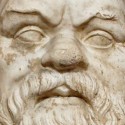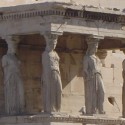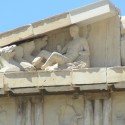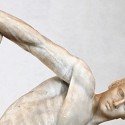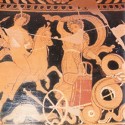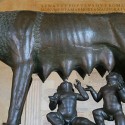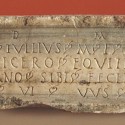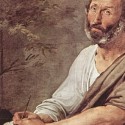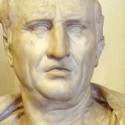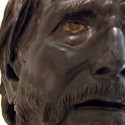Author Archive
1.11 Philosophy and Politics
Posted on by A. Palma
The triumph of science and the philosophy of thought postalessandrino focus on the inner life of man, represented the final victory of Socrates and Plato. In the second half of the fifth century a revolution took place in Greek philosophy who identified himself so completely
1.12 The figurative arts
Posted on by A. Palma
In ancient Greece, despite the many local varieties, there was a remarkable uniformity of taste and needs, more changeable over time and space. This is attested in various ways, the rapid spread of the Doric temple throughout the peninsula and
1.13 Architecture and urbanism
Posted on by A. Palma
The Greek countryside was full of people but stripped from the architectural point of view. Except for occasional temple complexes at a certain distance from the city, piùà significant buildings were gathered in towns. With the passage of time,
1.14 The Sculpture
Posted on by A. Palma
The Athenians, in rebuilding their city after the Persian invasion, first restored the agora, omitting the Acropolis. The motivation for this choice lay in the need to restore the daily life on an orderly, or perhaps even in the scarcity of resources. Aristotele this
1.15 The Painting
Posted on by A. Palma
The history of Greek painting must be written on the basis of the testimonies of the ceramic, as well as on the basis of literary references. Since 1000 about, con Atene, began to appear top quality ceramic tiles, in large part, decorated only with
2.1 The Origins
Posted on by A. Palma
The origins of Rome and the early centuries of its history are still the subject of research that still fascinate generations of historians and experts on the subject of simple. The medieval culture and then the Renaissance humanist thought and saw in Rome
2.3 The philosophy
Posted on by A. Palma
Nel I sec. a.C. Romans studied and deepened, particularly, two philosophical doctrines that had been established after Aristotle, who were predominantly focused on the moral and practical: Epicureanism and Stoicism. L’epicureismo – greek dating back to Epicurus (341-270
2.3.1 Lucretius
Posted on by A. Palma
On the life of Lucretius we have very little information and no clue of help can be found in more than 7000 version of De Rerum Nature. A testimony of St. Jerome (IV sec.), to be taken with caution, tells us that in 94 a.C. born
2.3.2 Cicerone
Posted on by A. Palma
Born in Arpino 106 a.C. from a wealthy family but not aristocratic, completes his course of studies in Rome, acquiring legal education, rhetoric and philosophical, in order to devote himself to politics. And so it is in contact with the
2.3.3 Seneca
Posted on by A. Palma
Lucius Annaeus Seneca was born in Córdoba between the 4 e l’1 a.C. and died in Rome on the orders of Emperor Nero in 65 d.C. A wealthy family, is brought to Rome by his father, Lucius Annaeus Seneca said the Rhetor, around 5

